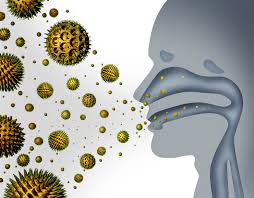Recent data suggests that both asthma and allergies can alter the conditions in the mouth, resulting in more tooth decay. According to a 2010 systematic review and meta-analysis, both children and adults with asthma have more than double the risk for tooth decay. This is most likely the result of the disease process itself and medications patients are taking to manage symptoms. The inflammatory process of asthma may alter the microbiome in the mouth, leading to a rise in cavity-causing bacteria. Inhalers have a low pH and use sweeteners as a carrier, both making the mouth more susceptible to cavities. Inhalers can also cause dry mouth, creating an ideal environment for bacteria.

Similar trends may occur in patients with allergic rhinitis, also known as hay fever or seasonal allergies. Allergic rhinitis (seasonal allergies) is one of the most common chronic diseases among both children and adults. Patients often manage with oral or inhaled antihistamines, and inhaled corticosteroids. Oral antihistamines can cause dry mouth, a condition linked to cavities. Several studies found a link between allergic rhinitis, use of inhaled corticosteroids, and the number of restorations and number of cavities in patients. Like asthma, allergy sufferers may have dryer mouths, altered bacteria in the mouth and more mouth breathing. All of these conditions create an environment conducive to forming cavities.
If you are an asthma or allergy sufferer, it’s important to let your dentist know. Together we can discuss what medications you are taking and conditions that can make you more prone to cavities. If you use an inhaled corticosteroid it may help you to rinse with water and spit after use. Sugar free chewing gum may help restore a normal pH and increase saliva. Dry mouth sufferers can try a xylitol spray or a xylitol nasal spray. Sea salt sinus rinses can also help to remove residual medication in nasal passages that could be causing more cavities.
Talk to us about your asthma and allergies. We can suggest a number of solutions that will help you maintain your dental health while living with these chronic conditions.
- Dr. Audrey Miles


